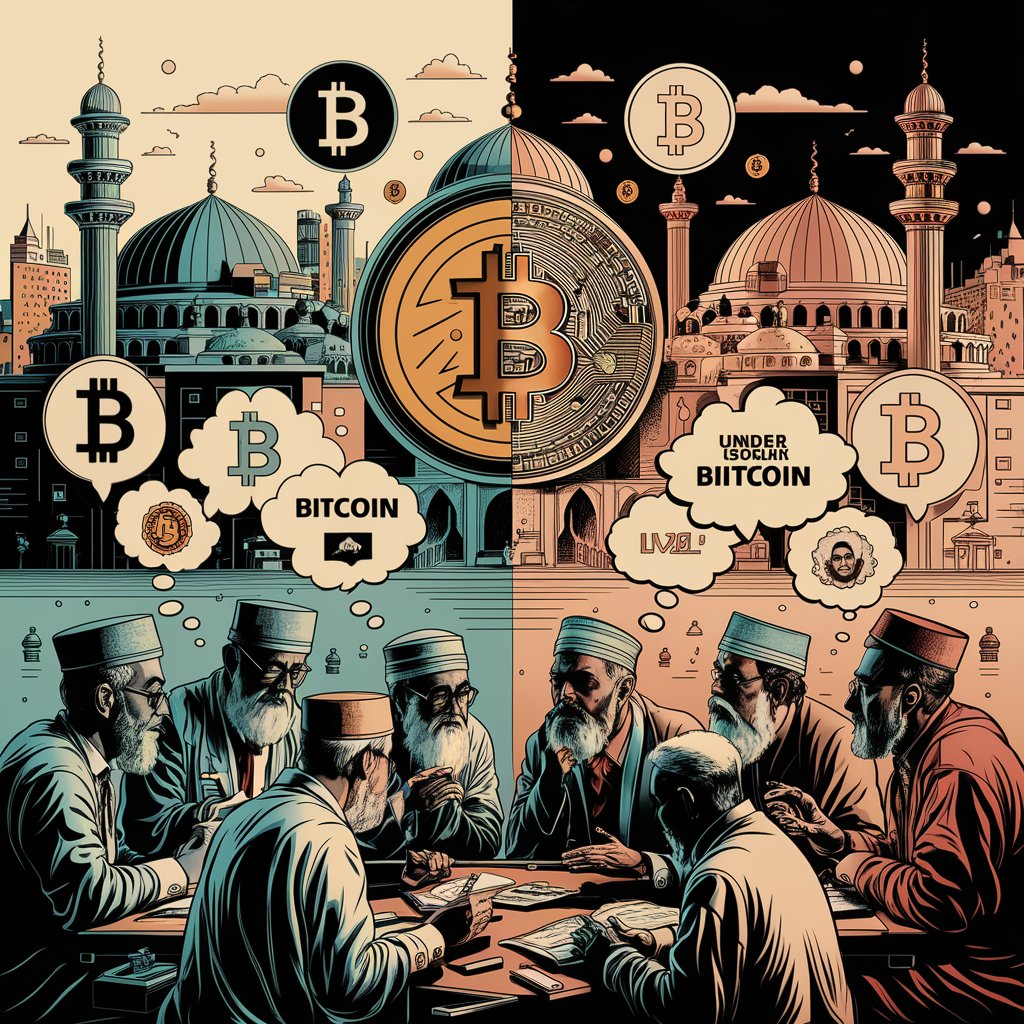Is Bitcoin Halal?
As an expert in the field of Islamic finance and cryptocurrency, I have been asked many times about the permissibility of Bitcoin and other digital currencies under Islamic law. The question of whether Bitcoin is halal or haram has been a topic of much debate among Islamic scholars and financial experts. In this comprehensive article, I will provide an in-depth analysis of the various arguments for and against the permissibility of Bitcoin under Islamic law.
Understanding Bitcoin and Blockchain Technology
Before delving into the Islamic perspective on Bitcoin, it is essential to have a basic understanding of what Bitcoin is and how it works. Bitcoin is a decentralized digital currency that operates on a peer-to-peer network called the blockchain. The blockchain is a distributed ledger technology that records all transactions in a secure and transparent manner.
Some key features of Bitcoin include:
- Decentralization: Bitcoin is not controlled by any central authority, such as a government or financial institution.
- Anonymity: Bitcoin transactions can be conducted anonymously, without the need for personal identification.
- Limited supply: There will only ever be 21 million Bitcoins in circulation, which helps to prevent inflation.
The Islamic Perspective on Money and Trade
Islam has a rich history of trade and commerce, and the Quran and Hadith provide guidance on how Muslims should conduct their financial affairs. Some key principles of Islamic finance include:
- Prohibition of Riba: Riba, or usury, is strictly prohibited in Islam. This means that any form of interest or excessive profit is not allowed.
- Encouragement of trade: Islam encourages trade and commerce as a means of earning a living and contributing to the economy.
- Avoidance of speculation: Islam discourages speculation and gambling, as these activities are seen as a form of unjust enrichment.
| Islamic Principle | Description |
|---|---|
| Prohibition of Riba | Riba, or usury, is strictly prohibited in Islam. This means that any form of interest or excessive profit is not allowed. |
| Encouragement of trade | Islam encourages trade and commerce as a means of earning a living and contributing to the economy. |
| Avoidance of speculation | Islam discourages speculation and gambling, as these activities are seen as a form of unjust enrichment. |
Arguments for the Permissibility of Bitcoin
There are several arguments in favor of the permissibility of Bitcoin under Islamic law:
-

Digital currency Islamic law Bitcoin is not a currency: Some scholars argue that Bitcoin is not a currency in the traditional sense, but rather a digital asset or commodity. As such, it is not subject to the same rules and regulations as traditional currencies.
- Bitcoin is not based on Riba: Bitcoin does not involve any form of interest or usury, which is strictly prohibited in Islam. Transactions are based on a peer-to-peer network and do not involve any financial intermediaries.
- Bitcoin promotes financial inclusion: Bitcoin has the potential to provide financial services to the unbanked and underbanked populations, particularly in developing countries where access to traditional banking services is limited.
Arguments Against the Permissibility of Bitcoin
There are also several arguments against the permissibility of Bitcoin under Islamic law:
- Bitcoin is speculative: Some scholars argue that Bitcoin is a highly speculative asset, and that investing in it is akin to gambling. This is discouraged in Islam, as it is seen as a form of unjust enrichment.
- Bitcoin is not backed by any tangible asset: Unlike traditional currencies, which are backed by gold or other tangible assets, Bitcoin is not backed by anything. This lack of intrinsic value is seen by some as a red flag.
- Bitcoin is used for illegal activities: Bitcoin has been associated with illegal activities such as money laundering and drug trafficking. Some scholars argue that participating in such activities, even indirectly, is not permissible in Islam.
The Role of Islamic Scholars
Given the complex nature of Bitcoin and its potential implications for Islamic finance, it is essential that Islamic scholars are involved in the discussion and provide guidance to the Muslim community. Some key considerations for Islamic scholars include:
- Understanding the technology: Islamic scholars must have a deep understanding of how Bitcoin and blockchain technology work in order to make informed decisions about its permissibility.
- Applying Islamic principles: Islamic scholars must apply the principles of Islamic finance, such as the prohibition of Riba and the avoidance of speculation, to the context of Bitcoin and other cryptocurrencies.
- Providing guidance: Islamic scholars must provide clear guidance to the Muslim community on the permissibility of Bitcoin and other cryptocurrencies, based on their understanding of the technology and the principles of Islamic finance.
Conclusion
In conclusion, the question of whether Bitcoin is halal or haram is a complex one that requires careful consideration of both the technology itself and the principles of Islamic finance. While there are arguments on both sides, it is ultimately up to individual Muslims to make their own decisions based on their understanding of the issue and the guidance provided by Islamic scholars.
As an expert in the field, my personal view is that Bitcoin and other cryptocurrencies have the potential to provide significant benefits to the Muslim community, particularly in terms of financial inclusion and the avoidance of Riba. However, it is essential that Muslims approach these technologies with caution and seek guidance from knowledgeable scholars.
Ultimately, the key to navigating this complex issue is education and understanding. By learning about Bitcoin and blockchain technology, and by applying the principles of Islamic finance, Muslims can make informed decisions about the permissibility of these new and exciting technologies.








